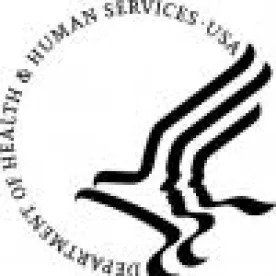A new Health & Human Services OIG Advisory Opinion and a civil monetary penalty settlement with the OIG underscore the risks of contractual arrangements between hospitals and physician-owned enterprises. On July 8, the OIG announced a $7.3 Million settlement with United Shockwave Services, United Prostate Centers, and United Urology Centers. The companies provide hospitals with lithotripsy and laser services and equipment. It appears that the contractual joint ventures were often structured so that the hospitals provided (and billed for) these services as provider-based services through “under arrangements” contracts. The OIG alleged that the companies and their physician owners leveraged patient referrals to obtain the contract business from hospitals. Announcing the settlement, Daniel R. Levinson, the HHS Inspector General, said that “we continue to have serious kickback concerns when companies link investment opportunities to the ability to generate business and offer returns that are disproportionate to business risk.” In addition to the monetary settlement, United also entered into a corporate integrity agreement under which an independent reviewer was appointed to monitor lithotripsy and laser arrangements with hospitals that receive referrals from United or its physician investors.
While the United arrangements were found to have violated the Anti-Kickback Statute, a recent OIG Advisory Opinion indicates that under arrangements contracts between hospitals and third-parties can indeed be structured to satisfy fraud and abuse laws. On August 30, the OIG issued Advisory Opinion 10-14 in which it addressed an arrangement whereby a hospital engages a sleep testing provider to provide sleep testing services on a “per-click” under arrangements basis. Under the proposed arrangement, the sleep testing company (with no physician ownership) contracts with a hospital to provide equipment, technology, supplies and staff necessary to operate a sleep testing facility at the hospital. The hospital owns and maintains the space and provides administrative support and a medical director for the facility. The OIG found that the proposed arrangement does not fit within a safe harbor to the Anti-Kickback Law since the hospital pays on a “per-click” basis and thus the aggregate charges for the arrangement are not set in advance. Nevertheless, the OIG found that the arrangement poses a low risk to fraud and abuse laws and said that it would not impose sanctions against the parties. The OIG gave a helpful list of suspect characteristics of some under arrangements transactions. The OIG noted that the presence of any of the following factors would increase the risk of non-compliance:
- Hospital paying above-market rates for the arranged-for services to influence referrals.
- The “under arrangements” entity accepts below-market rates to secure referrals from the hospital.
- The hospital owns an interest in an “under arrangements” entity such that the hospital receives remuneration in the form of returns on investment in exchange for referrals to the entity.
- A referral source for the hospital owns an interest in the “under arrangements” entity.
- The “under arrangements” transaction includes the furnishing of items and services ancillary or additional to the services being furnished “under arrangements” or includes the furnishing of items or services to patients who are not hospital patients (inpatient or outpatient).
In addition to finding none of the foregoing risk factors present in the proposed arrangement, the OIG noted the presence of the following factors which reduced the Anti-Kickback risk:
- Sleep testing services are ordered and interpreted by physicians without a direct or indirect financial interest in the “under arrangements” entity.
- The per-test fees were arrived at through arm’s-length negotiations, are consistent with FMV, and do not take into account the volume or value of referrals or business generated between the parties.
- The fees are paid regardless of whether the hospital receives reimbursement from a patient or third-party payor.
- The hospital assumes business risk and contributes substantially to furnishing the sleep testing services.
The OIG distinguished this arrangement from a “turnkey” arrangement where one provider provides little more than a billing number and a captive stream of referrals, which another provider that is already in the same line of business furnishes the bulk of the services.
Much attention has been recently paid to the tightening of the Stark rules regarding under arrangements joint ventures between hospitals and physician-owned entities. These latest developments from the OIG also serve as reminders that Anti-Kickback issues lurk in all such deals, with or without physician ownership. With the enforcement climate becoming ever more strict, the time is now to review your “under arrangements” or other contractual joint ventures for suspect factors. Contact any of our Health & Life Sciences attorneys to discuss these issues further or for assistance with a deal spot check or audit.






 />i
/>i

